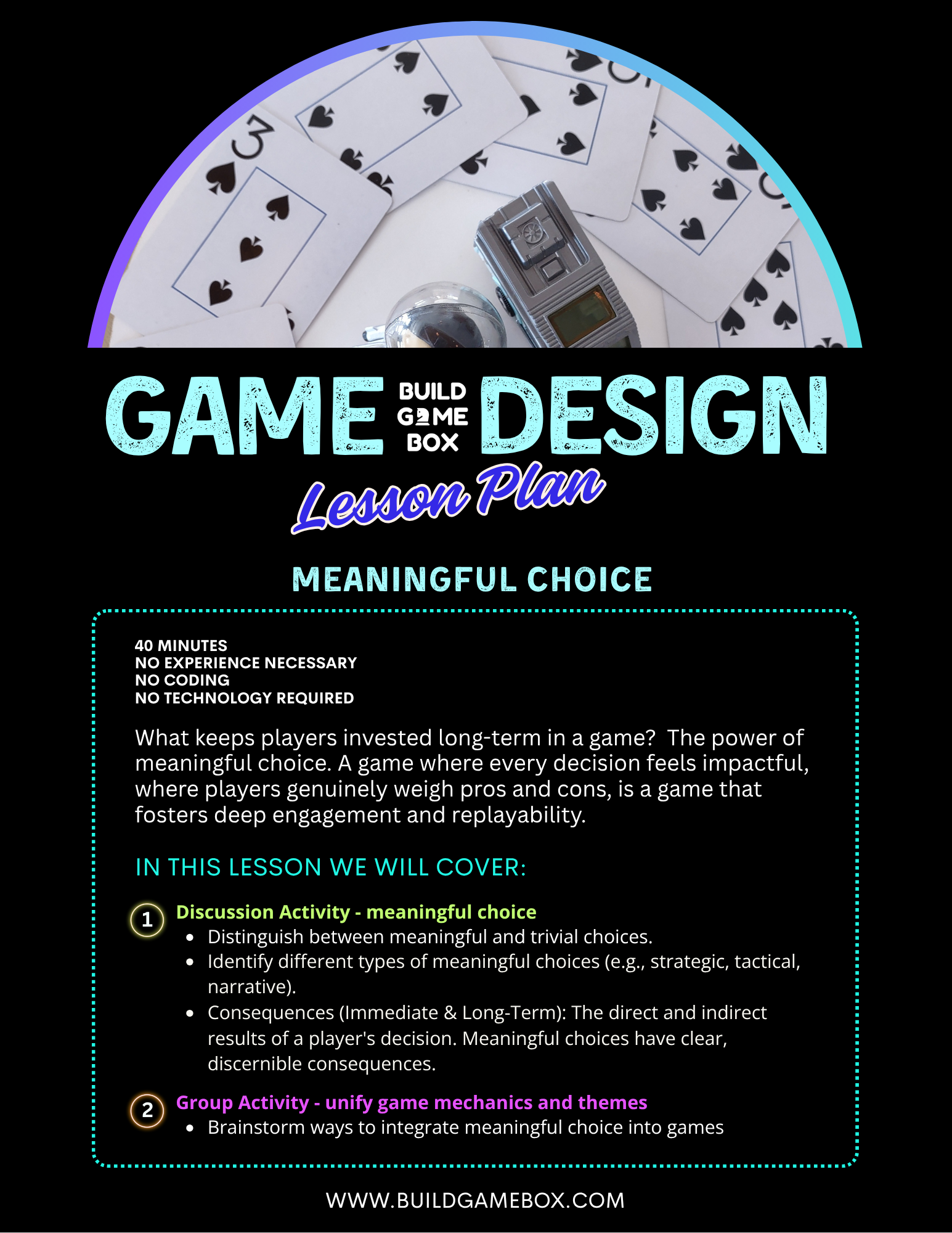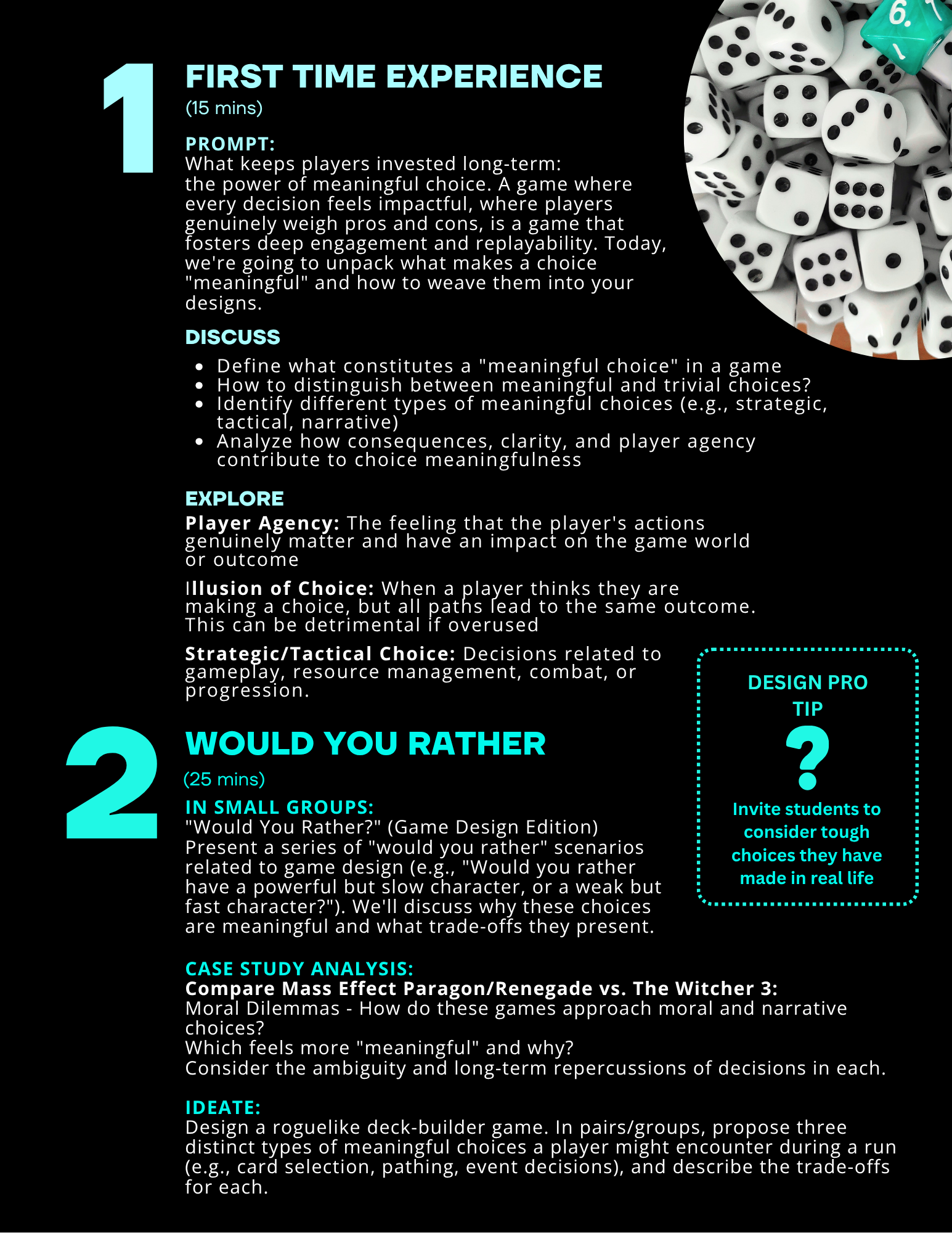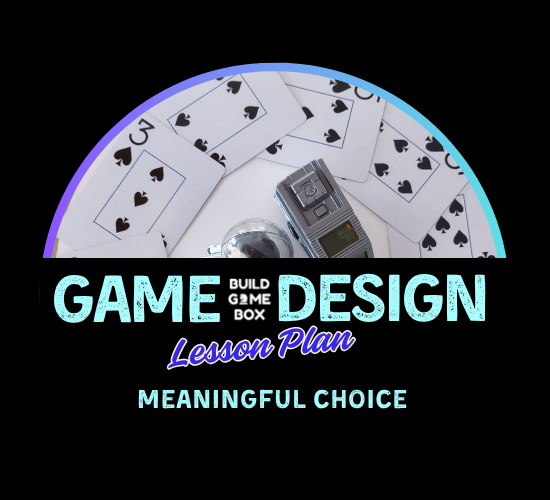

Meaningful Choice in Games
What keeps players invested long-term? the power of meaningful choice. A game where every decision feels impactful, where players genuinely weigh pros and cons, is a game that fosters deep engagement and replayability. Today, we're going to unpack what makes a choice "meaningful" and how to weave them into your designs.
Learning Objectives
- By the end of this lesson, you should be able to:
- Define what constitutes a "meaningful choice" in game design.
- Distinguish between meaningful and trivial choices.
- Identify different types of meaningful choices (e.g., strategic, tactical, narrative).
- Analyze how consequences, clarity, and player agency contribute to choice meaningfulness.
- Brainstorm ways to integrate meaningful choices into various game genres.
Key Concepts
Player Agency: The feeling that the player's actions genuinely matter and have an impact on the game world or outcome.
Consequences (Immediate & Long-Term): The direct and indirect results of a player's decision. Meaningful choices have clear, discernible consequences.
Trade-offs: When a choice forces a player to give up one benefit to gain another. This is often at the heart of meaningful decisions.
Information Asymmetry: When players don't have perfect information about the outcome of a choice, adding tension and risk.
Illusion of Choice: When a player thinks they are making a choice, but all paths lead to the same outcome. This can be detrimental if overused.
Narrative Choice: Decisions that impact the story, character relationships, or world state.
Strategic/Tactical Choice: Decisions related to gameplay, resource management, combat, or progression.
Activities
Discussion Starter: "Would You Rather?" (Game Design Edition) I'll present a series of "would you rather" scenarios related to game design (e.g., "Would you rather have a powerful but slow character, or a weak but fast character?"). We'll discuss why these choices are meaningful and what trade-offs they present.
Class Activity: Identify the Trivial Let's look at some games. Can you identify choices that feel like choices but ultimately have no real impact? Why might a designer include these, and when is it acceptable or problematic?
Case Study Analysis: Mass Effect Paragon/Renegade vs. The Witcher 3 Moral Dilemmas How do these games approach moral and narrative choices? Which feels more "meaningful" and why? Consider the ambiguity and long-term repercussions of decisions in each.
Design Challenge: Roguelike Deck-Builder Choices You're designing a new roguelike deck-builder. In your groups, propose three distinct types of meaningful choices a player might encounter during a run (e.g., card selection, pathing, event decisions), and describe the trade-offs for each.
Homework
Play & Analyze: Play a game known for its choices (e.g., Disco Elysium, Fallout: New Vegas, Stardew Valley). Identify at least three moments where you felt you made a truly meaningful choice. Describe the choice, its immediate consequences, and any long-term impacts you observed.
Further Reading: Read "The Art of Game Design: A Book of Lenses" by Jesse Schell (Lens of the Player's Choice, Lens of Meaningful Choices).
Further Watching: Search for GDC talks on "player agency" or "narrative choice."
Conclusion: Meaningful choices are the backbone of player investment. They transform passive consumption into active participation, making players feel truly connected to the game's world and its outcomes. Always ask yourself: "What are the consequences of this decision?" and "What is the player giving up to make this choice?" Next, we'll strip games down to their essence and talk about core mechanics.
